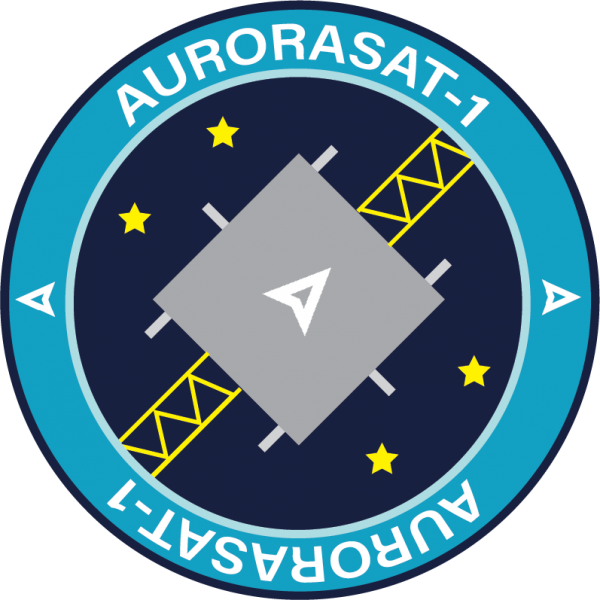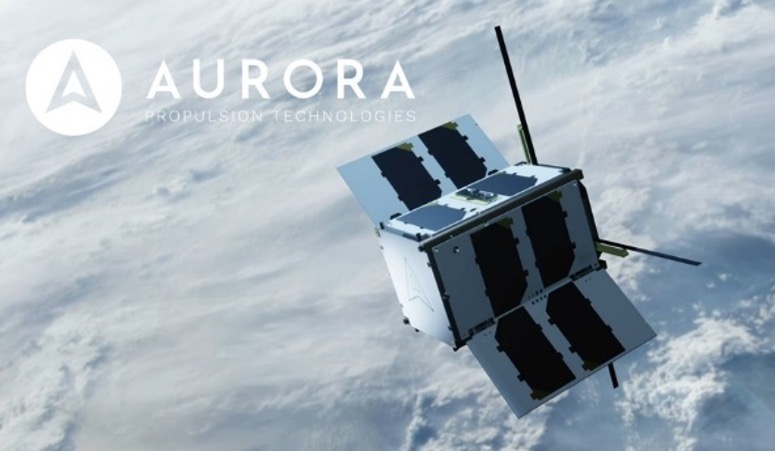Aurora Propulsion Technologies to Launch on Rocket Lab a Satellite Developing Next-Generation Space Junk Removal Technologies
AuroraSat-1 will test spacecraft hardware developed for sustainable space use including water-based propulsion jets and plasma brakes.

Espoo, Finland. Aurora Propulsion Technologies, Finnish company dedicated to the sustainable use of space, has announced it will launch a satellite to test space junk removal technologies on Rocket Lab, a leading launch provider and space systems company.
Lifting-off from Launch Complex 1 on New Zealand’s Mahia Peninsula as part of a rideshare mission scheduled in Q4, 2021, Electron will deploy AuroraSat-1 to low Earth orbit in a demonstration of the company’s proprietary propulsion devices and plasma brakes that provide efficient propulsion and deorbiting capabilities for small satellites. The CubeSat will validate the water-based propellant and mobility control of its Resistojets that can assist spacecraft with detumbling capabilities and propulsion-based attitude control. AuroraSat-1 will also test its deployable Plasma Brakes which use a micro-tether to interact with charged particles in space, ionospheric plasma, to generate significant amounts of drag to deorbit the spacecraft safely at the end of its life.

Aurora CEO Roope Takala said:
“After earlier launch plans fell through, we greatly value Rocket Labs’ ability to offer a flight in flight window starting just three months from our originally planned launch date. The quick response Rocket Lab offered allows us to space prove our technologies sill this year and keep on track with our development plans.”
The recently-signed launch agreement provides Aurora with an accelerated on-ramp to space at a critical phase in the company’s growth and technology development. Originally manifested to launch on a different rocket and orbital transfer vehicle, this rapid and streamlined space access, combined with the ability of Electron’s Kick Stage to precisely deliver payloads to their unique orbits, were decisive factors in Aurora selecting Rocket Lab as the launch provider for their mission.
Peter Beck, Rocket Lab founder and CEO, stated:
“Speed to space is crucial in the development of next generation technologies like Aurora’s, made possible by the dedicated team behind Electron that delivers rapid and responsive launch for satellite operators who want to move quickly. We’re delighted to be working with Aurora to enable new and innovative systems with the safe and sustainable use of space in mind.”
AuroraSat-1 joins a collection of other announced satellites onboard this rideshare mission. The mission is expected to follow on from three back-to-back Electron launches in August and September for BlackSky Global.

About Aurora Propulsion Technologies
Aurora Propulsion Technologies’ mission is to ensure sustainable use of space, whilst prolonging the useful lifespan of satellites. Our technologies enable effective and prompt implementation of satellite position and orientation to ensure successful execution and growth for the owners’ business as well as the safe and reliable deorbiting of satellites at the end of their useful life. The long-term mission goal is deep space exploration with microsatellite-sized probes using a revolutionary means of propulsion, an electric sail.
About Rocket Lab:
Rocket Lab is a global leader in space, building rockets and spacecraft that make it easier to get to orbit and to do amazing things there. Founded in 2006, Rocket Lab provides end-to-end mission services that provide frequent and reliable access to space for civil, defense, and commercial markets. Headquartered in Long Beach, California, Rocket Lab designs and manufactures the Electron and Neutron launch vehicles and Photon satellite platform. Rocket Lab’s Electron launch vehicle is the second most frequently launched U.S. rocket annually and has delivered more than 100 satellites to orbit for private and public sector organizations, enabling operations in national security, scientific research, space debris mitigation, Earth observation, climate monitoring, and communications.
Courtesy of Aurora Propulsion Technologies











 Copyright 2023 All rights reserved.
Copyright 2023 All rights reserved.